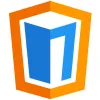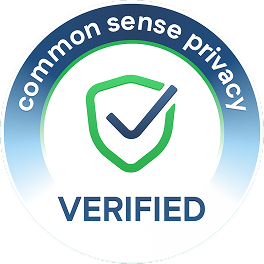
Digital Citizenship Week is October 20–24!
Join teachers worldwide to promote a healthy, positive approach to media and tech.
Take a look inside 6 images
Mangahigh
Pros: Learning tools are solid and adapt to students' levels, the games help kids retain what they've learned, and the dashboards track progress.
Cons: Drill-and-practice activities could get old, the pace of some games is a bit slow, and the focus on competition may not work for some students.
Bottom Line: Fantastic tool for flipped or blended classrooms, formative assessment, or extra practice in any setting.
Mangahigh is ideal for blended classrooms, homework replacement, or extra practice. Teachers can use the dashboard to create different classes, add students, choose specific games each class can access, and monitor students' activity. Under Challenges, teachers can search the games and Prodigi quizzes that target specific Common Core standards and assign them to students.
Older students are better off in the Prodigi section, where activities on numbers, algebra, shapes, and data are more text-heavy and involve some multiple-choice critical thinking. Keep these tutorials and exercises in mind as a great resource for test prep, as refreshers after summer break, or for teens moving into more advanced math classes. Another nifty feature is a search tool that lets you assign Prodigi tutorials based on grade level or Common Core standard. If it works for your students -- and won't diminish their personal progress -- you can also inject a little healthy competition into the mix by adding your class to public leaderboards, where students can see how they stack up against other schools nationally.
Mangahigh is a web-based platform that boasts dozens of math games and hundreds of tutorials and quizzes, all aligned with Common Core standards. It teaches and reinforces a wide variety of math fundamentals, from counting and number sense all the way up to beginning algebra and geometry concepts. It also includes some coding lessons in Scratch. Students can play through games at their own pace or work on teacher-assigned challenges and lessons. For extra-competitive flavor, students can earn medals, badges, and rewards, compete in social games with students across the world, or take part in school-wide challenges against other schools (called Fai-Tos).
An impressive teacher dashboard lets instructors manage the whole experience. They can assign modules (including future assignments), track progress, view detailed reports, and even earn badges themselves. The student dashboard is impressive too, giving students access to lessons, activities, and games, along with the ability to view their progress.
Most learning in Mangahigh happens either in challenges, interactive quizzes, or standalone games. The quizzes and arcade-style games are expertly combined with meaningful learning content to push students to reach more sophisticated levels of understanding. Mangahigh does an impressive job of letting the math content drive student engagement. With progress, speed, and accuracy all displayed, it aims to push students to master content just for the thrill of achieving their personal best.
However, it should be noted that the competition and speed elements may not work for all students. Mangahigh also tells students if they are at an easy, medium, hard, or extreme level and moves them down levels if they're struggling. This adaptive method is great for building skills but may affect confidence of some students -- especially if they are comparing themselves to others. Also, each skill is matched with one game mechanic; if kids could practice what they've learned in a variety of ways, it might build deeper understanding.
















